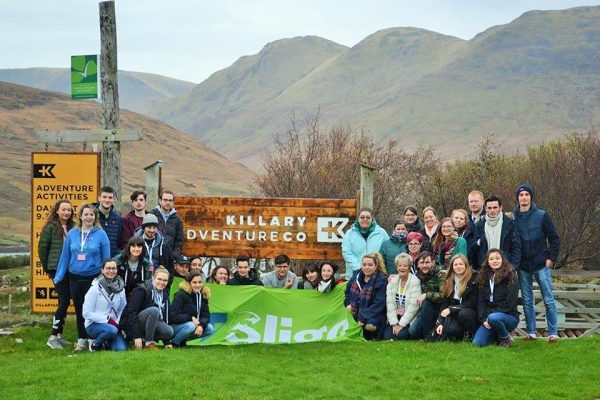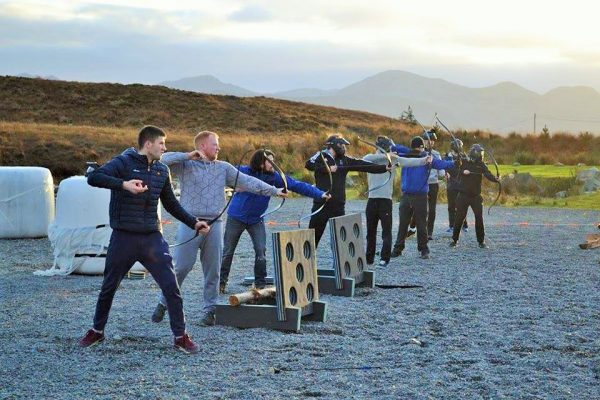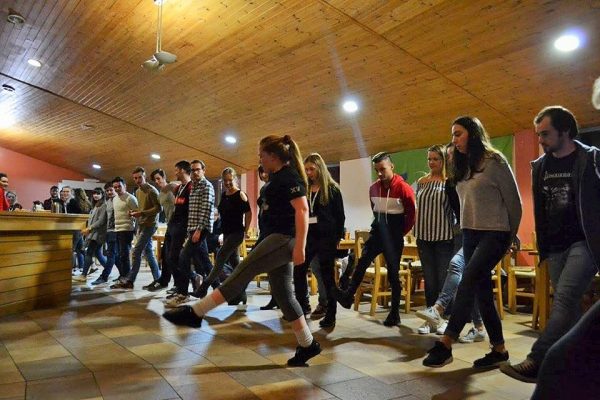IT Sligo Tourism & Event Marketing student Ciara Hamilton reports on a memorable weekend of outdoor purrsuits and Irish culture for some of the Institute’s international students
A group of ambitious students from IT Sligo’ s Tourism with Event Management degree programme brought 20 international students into the West to celebrate International Students Day 2017 and to experience “Craic agus culture” from an Irish perspective.
The trip facilitated discovery of the hidden gems in the West of Ireland giving the international students a unique taste of what of what Ireland has to offer through new experiences.

The students visited Killary adventure centre on the Mayo/Galway border. It embraced Ireland’s natural landscapes such as Killary fjord and Aasleagh Falls.

‘Taking Aim’ Some of IT Sligo’s Intenational students try thieir hand at Archery during their recent visit to Killary as part of the students ‘Craic Agus Culture’ weekend.
At Killary adventure centre, the International students experiencedthe best of the Irish outdoors activities at the breath-taking location which provided cosy accommodation and delicious food. Archery was a favourite amongst the students and it gave way to integration of all nationalities and provide lots of laughter. Jorj from Germany remarked that “this was the most fun he has had in Ireland”.
The evening entertainment provided a taste of Irish through “Bingo as Gaeilge”, and renowned Irish Edwina Cauneen, gave the students dance lessons.

‘Stepping it out’ Edwina Cauneen takes the International Students through their ‘one-two-threes’ during an Irish dance lesson.
The trip itinerary also included some of the beautiful cultural and heritage sites of Mayo. There was a visit to the Famine Memorial and Crough Patrick along with other museums and attractions which showcased the traditional ways of life through interpretations of trade, crafts, hunting, fishing, domestic life and festivals reflecting Irelands rural heritage since the 1850s.